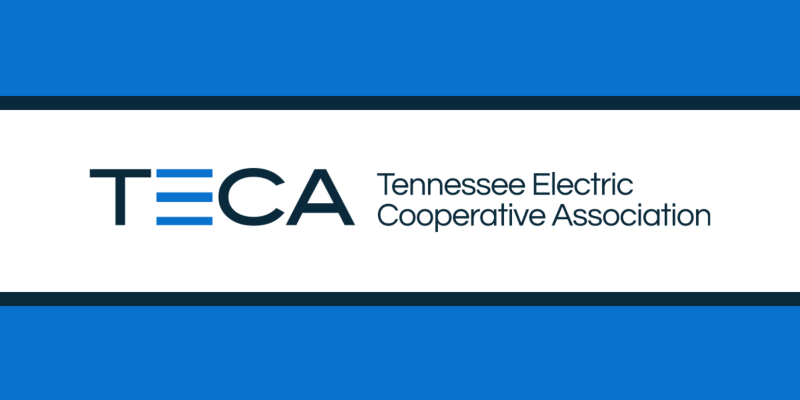Tennessee Fends Off Impostor with Integrity Fund Support

The Tennessee Electric Cooperative Association (TECA) recently won a long legal battle with a company pretending to be an electric cooperative. The Cooperative System Integrity Fund, managed by CFC, supported TECA throughout the battle by helping with legal fees and expenses associated with putting together a case before the state commission.
In May 2021, TECA learned of a filing to the Tennessee Public Utility Commission (PUC) from an organization called the Jackson Sustainability Cooperative (JSC). In the filing, the company disclosed that it intended to build a solar farm that would sell energy directly to several large commercial and industrial customers through the company’s own distribution facilities and metering equipment—in violation of Tennessee law regarding the geographic boundaries of electric utilities. To try and circumnavigate the law, the company fraudulently claimed to be exempt from regulation because they were an electric cooperative.
“TECA immediately engaged legal counsel and intervened in the case,” TECA CEO Mike Knotts said. “The PUC is not familiar territory for Tennessee cooperatives because we are regulated by the Tennessee Valley Authority rather than the PUC. Should the PUC have granted JSC’s petition, it would have created a precedent that would have destroyed the monopoly service model for electric sales in Tennessee.”
A Lengthy Legal Battle
Once TECA became aware of the initial filing, the statewide organization engaged in a protracted legal battle to defend the defined service model that protects cooperative members. The legal process even included an unprecedented financial sanction of JSC, after TECA deposed one of JSC’s partners to produce evidence that JSC was attempting to hide from TECA’s attorneys. The PUC hearing officer noted that “it is rare that companies appearing before the commission behave so cavalierly during the discovery process. Such a blatant disregard for the discovery process will not be tolerated.”
Along with JSC’s duplicitous legal tactics, the facts of the case were firmly on TECA’s side. This allowed TECA to prove to the PUC that the fake cooperative’s petition was as bogus as the organization’s appropriation of the cooperative brand.
“We were able to demonstrate that JSC did not qualify for exemption from PUC regulations because it was not, in fact, a cooperative,” Knotts said. “Originally, JSC claimed to be a generation and transmission cooperative. After our filings demonstrated this to be false, JSC refiled its corporate charter and then claimed to be a distribution cooperative. TECA was also able to demonstrate that JSC did not qualify to provide retail electric service under Tennessee state law.”
TECA’s win before the PUC removes the potential for any cooperative in the state to lose territory due to a third party building its own generation and distribution facilities. The victory also preserves the meaning and goodwill associated with the term cooperative—as JSC would not have operated according to the seven cooperative principles and tarnished the public image of what a cooperative is.
The Cooperative Business Model Is Worth Protecting
“Although we knew of efforts in other states to enact third-party solar sales legislation or enact net metering policies, this is the first time we were aware of a solar developer who hoped to sell energy directly to a user over its own poles, wires and meters,” Knotts said.
While ultimately victorious, the legal effort required extensive research, discovery, drafting of briefs and responses, and oral arguments before the PUC—resulting in hundreds of thousands of dollars in unanticipated legal expenses. The Cooperative System Integrity Fund, managed by CFC, helped TECA cover its substantial legal costs.
“By offsetting a portion of the costs, the fund and CFC demonstrated their commitment to the electric cooperative business model itself,” Knotts explained. “CFC stood shoulder to shoulder with Tennessee’s cooperatives to protect our right to provide reliable, affordable electric service.”
When asked what lessons other cooperatives could learn from TECA’s experience, Knotts said, “It was a good lesson in the necessity of close relationships with key accounts, keeping track of community zoning and development proceedings in the area your cooperative serves, and the value of a strong legal and advocacy team at your statewide organization who can quickly mobilize and win.”
The Cooperative System Integrity Fund
Since its creation in 1986, the Integrity Fund—administered by CFC with decisions made by a five-member committee composed of CFC, NRECA and Rural Electric Statewide Managers Association representatives—has awarded more than $30 million in grants to nearly 300 cooperatives in 43 states to fight takeover and annexation bids by investor-owned utilities and municipal electric systems; preserve rights to offer non-electric energy services; and resist regulatory, judicial or legislative actions that threaten the cooperative business model.
Generally, the fund will pay up to 50% of a rural electric system’s eligible expenses, subject to a maximum limitation.